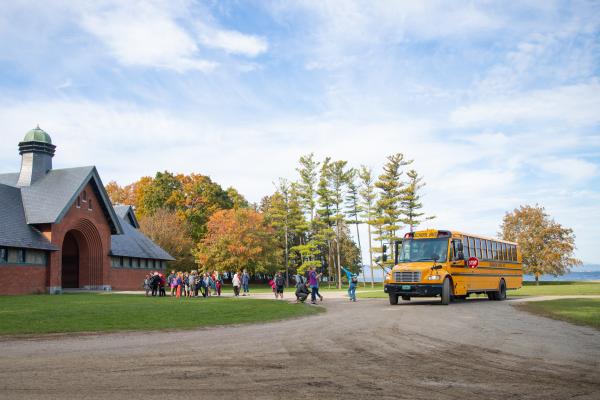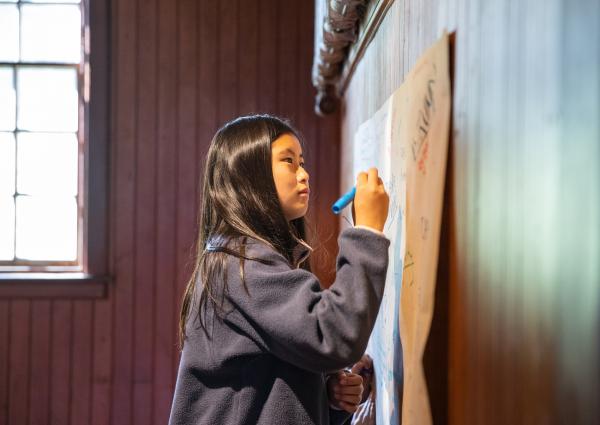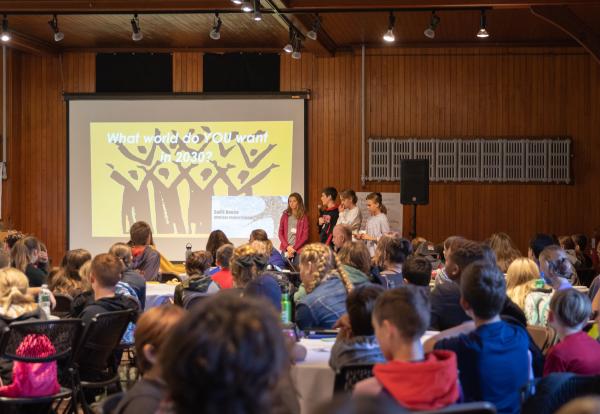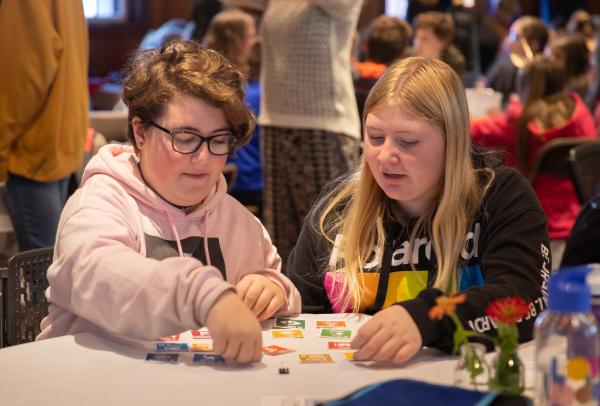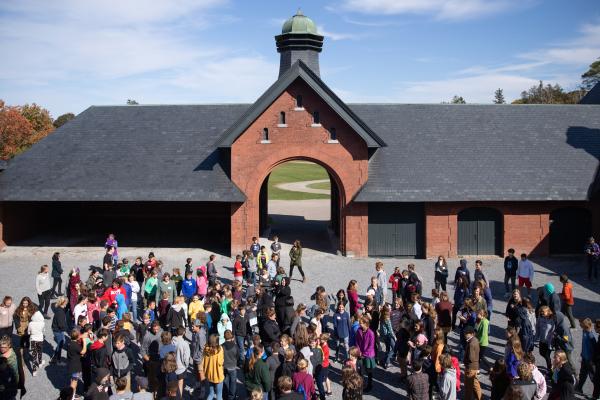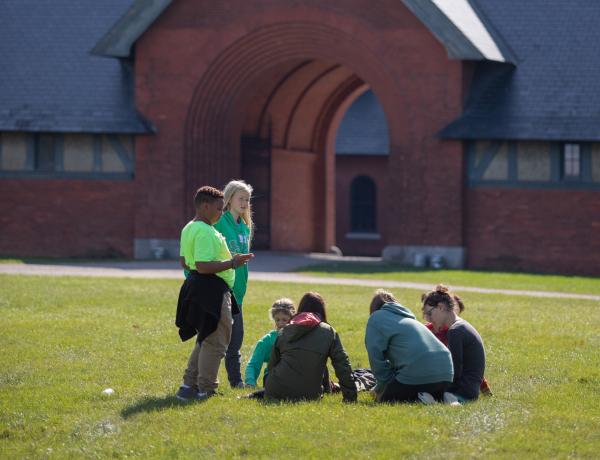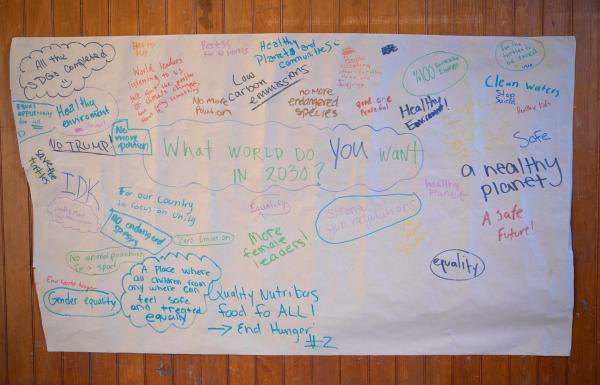What world do YOU want in 2030?
Then it was time to dig in! Students spent time grappling with the 17 Sustainable Development Goals, presented at each table in small squares of paper. Which ones are most important to the planet? Which one is most important to you? Sorting through the goals, students quickly realized how interrelated the goals are -- an important message in and of itself. At the end of the session, each team prioritized one goal that would be the focus of their year-long community project. Some of the goals that rose to the top were: Climate Action (#13), Gender Equality (#5), Zero Hunger (#1), and Good Health and Well-Being (#3)
With a beautiful fall day on offer, it was then time for the students to get outside for some team-building and systems thinking exercises! This got them ready for a local lunch prepared with food from the Farm, including mac 'n' cheese made from our raw farmstead cheddar!In the afternoon, students again split up into their school teams to begin brainstorming ideas and planning for their year-long project. Adult community partners were on hand to help teams think about what was possible, and where they might find adult support in executing a project. Over the course of the coming academic year, teams will finalize and implement their projects, supporting each other along the way. Then they will return to Shelburne Farms next May to report out on their accomplishments.
What world do YOU want in 2030?

